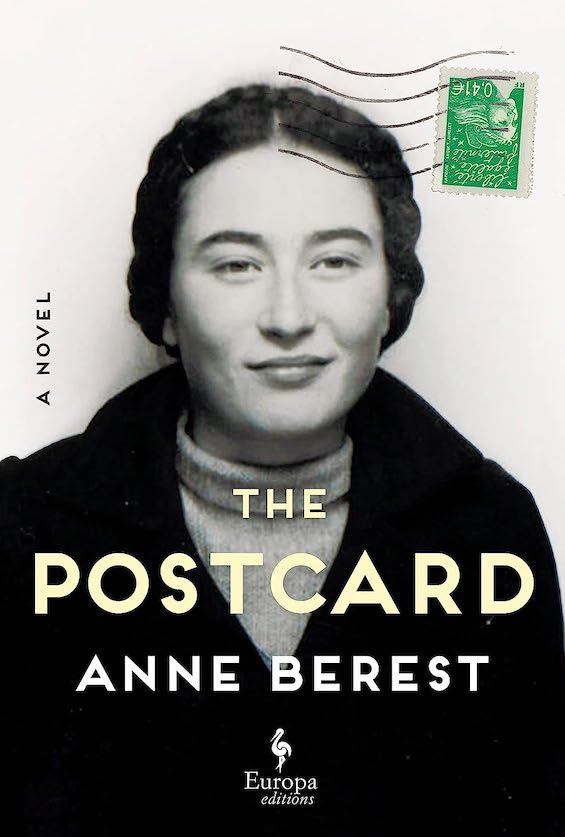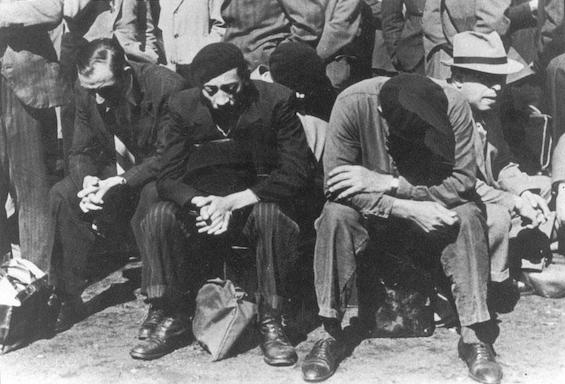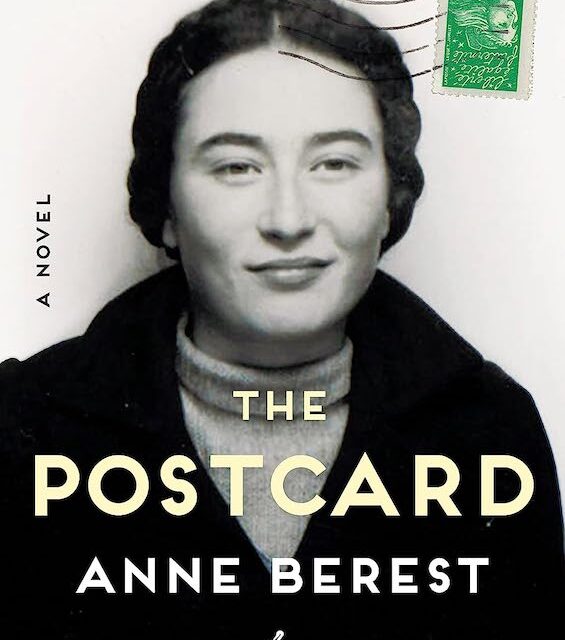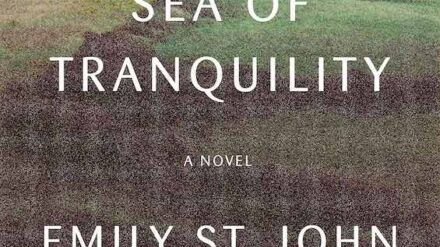
Many of the French authors I’ve read don’t follow the rules. They blithely mix fiction and nonfiction, change perspective and verb tense from one chapter to the next, and leap from present to past without warning. Such a book is author and actress Anne Berest’s award-winning bestseller, The Postcard, recently translated into English. She had already won wide acclaim as the coauthor of Gabriële, the biography of her great-grandmother Gabriële Buffet-Picabia, who was Marcel Duchamp’s lover and muse. Critics, who praise The Postcard, too, call it autofiction. That’s short for autobiographical fiction, and Berest’s account is that, if nothing else. She tells one family’s story—her own— using their own names, and hers, a story spanning more than a century.
Estimated reading time: 4 minutes
Europe’s history revealed through one family’s story
In chapters interrupted by her own (mostly her mother’s) years-long search for information about her grandparents and their children who disappeared during World War II, she chronicles the experiences of four generations of her family. And such a story it is, as they fled from their lives in turn-of-the-century Russia, through Poland, Latvia, and Israel, to France, then were forced to Germany, and back to Poland. From the pogroms to the ovens of Auschwitz. And, later, through years of anguish in a frustrating quest to turn up even the tiniest details about people she herself never knew.
The Postcard by Anne Berest, translated by Tina Kover (2023) 464 pages ★★★★☆

Nominally a novel, this story is all too real
Twenty years ago, Parisian Lélia Picabia received a postcard that contained only the names of her grandparents and a great-aunt and great-uncle. All had been murdered in the Holocaust. An article in the Jerusalem Post last year explained the followup. “Finally in 2019, Picabia and her daughter, author Anne Berest, 42, embarked on an investigation that not only likely solved the mystery—private detectives and a graphologist helped Berest identify the likely sender—but also helped them retrace their family’s hitherto unknown history.” And Berest, a successful author as well as an actress, set out to tell the story in novel form in The Postcard.
Using her own name and serving as narrator, and the real names of all her family members through five generations—she mentions one of her own daughters as well—Berest blends the family’s story with accounts of her and her mother’s investigation. Aspects of the tale are fictional. But the guts of the story are all too real. Russian Jews fleeing the pogroms. Their tension-filled stopovers in Poland, Latvia, and Israel before arriving in France. The troubled years of the 20s and 30s, as the continent’s increasing instability encroached on their lives. The terror of World War II. And their meeting with the “Final Solution,” like more than a million others, in the ovens of Auschwitz.
Much more than one family’s story
Berest’s account dwells at length on the family’s experiences in France during two decades of their lives there. The growing intensity of French antisemitism as the Nazi movement gained momentum and finally attained power. The terror they faced after Hitler invaded France and proceeded to tighten the noose around their necks. And, finally, deportation. Either directly to the ovens, or, for the youngsters in the family, a protracted stay in a transit camp. Then, after the war, the impact on a survivor and the family’s descendants as they cope with survivor guilt and the epigenetic changes experienced by so many. The Postcard is, in the end, far more than one family’s story. It’s an account of a people’s journey through 20th-century Europe.
About the author

La Carte Postale is the eighth of Anne Berest’s books. She is Parisian and an actress as well as an author. She as born in Paris in 1979. Like the family featured in this novel, Berest is Jewish.
For related reading
This is one of The 21 best books of 2023.
See “Anne Berest’s Best Story Came From Deep in Her Family’s Past” (Lithub, May 17, 2023) and “How French author Anne Berest confronted her family’s Holocaust story” (Jerusalem Post, July 23, 2022).
You might also be interested in:
- 20 most enlightening historical novels
- The 10 best novels about World War II
- Top 10 great popular novels
- Good books about the Holocaust
- Worthy books about Jewish topics
And you can always find my most popular reviews, and the most recent ones, on the Home Page.



























